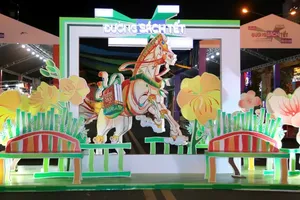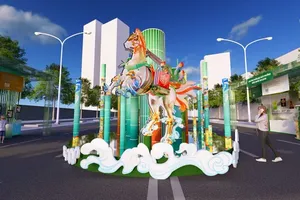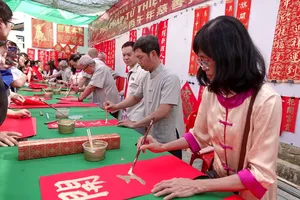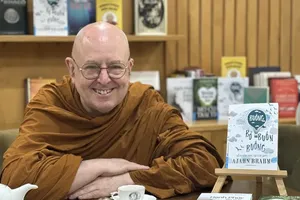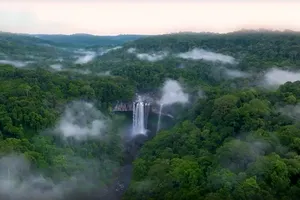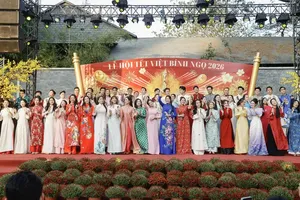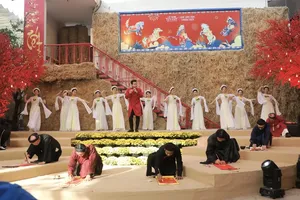Non-stop controversy
Award-winning filmmaker James Cameron, who once criticized artificial intelligence, has now expressed support for its use in filmmaking. He believes artificial intelligence can halve blockbuster film costs without job losses by boosting visual effects artists' efficiency. That's not about laying off the staff. It's about doubling the speed to completion on a given shot, so the cadence is faster and the throughput cycle is faster.
The Netflix co-CEO, Ted Sarandos, also stated that AI can significantly enhance the quality of movies by making advanced visual effects more accessible and cost-effective. Netflix is using AI to do set references or pre-vis and VFX sequence prep to make the process better.
He believed it also allows smaller films to have access to effects that previously would've been locked behind large budgets typically reserved for big-name projects.
It’s still the same creativity, but with AI, film producers are now able to do things that were impossible just five years ago. However, he is confident artificial technology will not replace a person. New technology helps enhance the experience for audiences and filmmakers, he stressed.
Nevertheless, there is ongoing controversy on the use of AI. Hollywood screenwriters and actors joined a strike in 2023 due to the anxiety of being replaced by AI. Actors wanted to secure protection for their images and performances used to train AI without their consent.
It is controversial in the industry to talk about Oscar-nominated films 'The Brutalist' and 'Emilia Pérez' that have admitted to using artificial intelligence in production. In “The Brutalist” film, Adrien Brody’s Hungarian accent in the critically acclaimed film was reportedly enhanced by artificial intelligence. Adrien Brody won the Oscar for Best Actor for his role in "The Brutalist." Tom Hanks has defended the controversial use of AI to de-age him in “Here.”
Many Hollywood experts said that AI will be meaningless unless filmmakers remain at the heart of their craft. In the end, technology must serve the filmmakers. The choice is whether to use AI at all and how to use it to become smarter, that ensures filmmakers and artists are not pushed to the sidelines.
Vietnamese cinema takes its first steps in AI
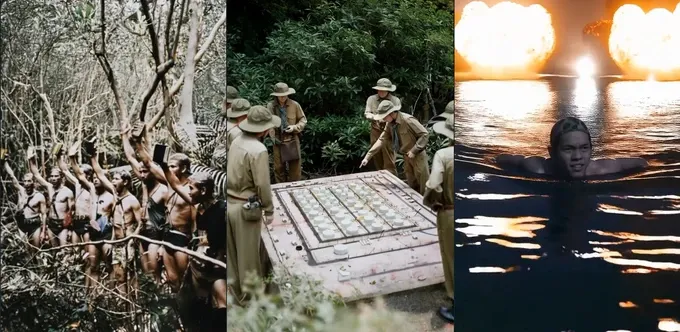
In mid-April, Chanh Phuong Film Studio, which is known as the producer of popular movies, including “Dong Mau Anh Hung” (The Rebel), “Bay Rong” (Clash), “De Mai Tinh 2” (Let Hoi Decide), and “Teo Em” (Little Teo), launched Vietnam’s first AI-driven short film competition titled Chanh Phuong AI Film Competition.
With the tagline “Technology shapes the image, humans shape the soul of the story,” the organization board received 86 submissions and selected 12 outstanding entries for the next rounds. The competition not only discovers new talent in the field of AI-assisted filmmaking but also honors originality, creativity, and emotional depth in every frame.
Previously, AI technology had already been applied in the production of music videos, TV commercials, and short films by many young creatives in Vietnam. Director Pham Vinh Khuong, a filmmaker from the 90s generation, has used this technology in the production of music videos such as “Buc tranh Dai Viet” (The painting of Dai Viet), “Tiec trang” (White party), and “Mat bao” (Eye of the Storm). He is also planning to produce a feature film project.
The Skyline, a group of young people who have restored thousands of photos of martyrs, bringing joy and emotion to the martyrs’ families, recently unveiled their short film titled “Rung Sac (Sac Forest) commando” using 4K AI technology. The 3-minute film has garnered over 418,000 views along with thousands of likes and comments since it was posted on Facebook.
According to director Ba Cuong, filmmakers are benefiting greatly from AI, which acts as a diligent and agile assistant with extensive knowledge, helping to save a significant amount of time. He believes that AI can be applied at various stages of film production, from the pre-production phase (finalizing scripts, scheduling and production planning, script development, casting) to the production phase (data management, filming, lighting) and post-production (visual effects, editing, color correction, subtitling and dubbing, distribution, and marketing (audience analysis, trailer creation)).
According to director Pham Vinh Khuong, despite the increasing use of AI, he believes it can never fully replace traditional filmmaking. Filmmakers can utilize AI to optimize manpower, budget, and time while still creating unique artworks.
Meanwhile, a representative from Chanh Phuong Films emphasized that the combination of technology and art is inevitable, but humans must remain the storytellers. A successful film isn’t just defined by stunning effects but by its power to touch the audience’s heart.

